本页面当前仅有英文版本。
我们对此深表歉意。
Fascinated by the richness of Chile’s terroirs, Baroness Philippine decided in 1999 to make her own wines in these beautifully preserved lands. The Chilean vineyard is a true gift of nature, so passing them on unspoilt
is a clear duty and responsibility.
Since its inception Baron Philippe de Rothschild Chile has therefore worked in complete respect of nature in order to preserve natural resources
and the authenticity of the Chilean terroir.
This intention has been strengthened over the last ten years and given practical expression in an environmental protection policy whose commitments
and outcomes have been endorsed by several certification schemes.
Baron Philippe de Rothschild Chile’s commitments are rolled out from vine to glass, respecting nature,
the people who make the wine and the consumers who drink it.
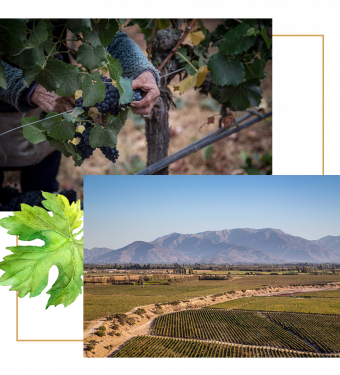
1 - In the vineyard: protecting and respecting nature
- 100% environmentally responsible vineyard management:
- planting of hedges and native trees to improve the soil structure and enhance biodiversity;
- introduction of plant cover between the rows of vines to regenerate the soil and make living organisms in the soil more productive;
- use of natural compost as fertiliser;
- use of biodegradable materials for all vineyard tasks, such as jute strips for vine ties.
- Drop irrigation for 75% of the vineyard.
- Recycling of all packaging materials used in the vineyard.
En accord avec la certification
« Sustainable Wine of Chile », Baron Philippe de Rothschild Chile a mis en place des pratiques viticoles adaptées et durables :
- Fertilisation est réalisée avec du compost naturel.
- Utilisation de produits biologiques pour la lutte contre les principales maladies cryptogamiques de la vigne (mildiou, oïdium, botrytis), avec l’objectif d’éliminer les résidus dans les vins.
- Optimisation de l’utilisation de la ressource en eau et utilisation d’énergies vertes (panneaux solaires sur la bodega de Maipo).
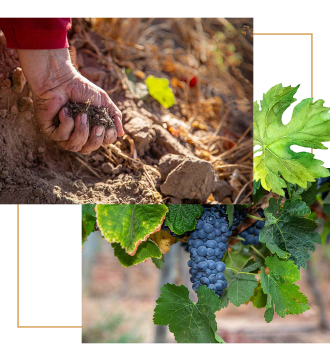
2 - In the winery: reducing environmental impacts
- Promotion of self-consumption with the installation in 2021 of 1,500 m² of solar panels meeting nearly 40% of the winery’s energy needs, equivalent to a reduction of 185 tonnes of CO².
- Introduction in 2010 of a policy of using lighter dry goods in order to reduce the winery’s carbon footprint, generating an 18% reduction in bottle weight.
- Installation in 2015 of a mobile clean-in-place unit to reduce inputs and make the washing and disinfection of vats more efficient.
- Installation in 2018 of low-consumption LED lighting.
- Introduction of a waste reduction and recycling policy.
- Use of biodegradable cleaning products and introduction of an innovative, 100% natural and ecological effluent treatment system.
- Introduction of strict measures to limit and control water consumption.
En accord avec la certification
« Sustainable Wine of Chile », Baron Philippe de Rothschild Chile a mis en place des pratiques viticoles adaptées et durables :
- Fertilisation est réalisée avec du compost naturel.
- Utilisation de produits biologiques pour la lutte contre les principales maladies cryptogamiques de la vigne (mildiou, oïdium, botrytis), avec l’objectif d’éliminer les résidus dans les vins.
- Optimisation de l’utilisation de la ressource en eau et utilisation d’énergies vertes (panneaux solaires sur la bodega de Maipo).
Exacting standards and precision are to be found at all stages of the making of Escudo Rojo.
The exceptional terroirs from which the wines come, as well as the men and women who tend the vines,
need to be preserved and respected.
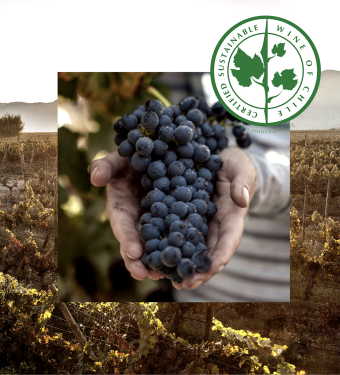
CERTIFICATION
SUSTAINABLE WINE OF CHILE
- Natural compost is used as fertiliser.
- Organic products are used to combat the main fungal diseases found in the vineyard (mildew, oidium and botrytis), with the aim of eliminating residues in the wines.
- Water use is optimised and measures are in place to take advantage of renewable energy sources, such as solar panels on the Maipo bodega.
En accord avec la certification
« Sustainable Wine of Chile », Baron Philippe de Rothschild Chile a mis en place des pratiques viticoles adaptées et durables :
- Fertilisation est réalisée avec du compost naturel.
- Utilisation de produits biologiques pour la lutte contre les principales maladies cryptogamiques de la vigne (mildiou, oïdium, botrytis), avec l’objectif d’éliminer les résidus dans les vins.
- Optimisation de l’utilisation de la ressource en eau et utilisation d’énergies vertes (panneaux solaires sur la bodega de Maipo).
Several tangible steps have been taken to meet the certification’s requirements:
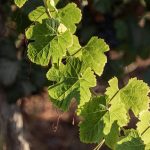
VINEYARD
The vineyard area encompasses vineyard management, fertilizers and waste.
- Green corridors are left between vine rows to avoid soil compaction and maintain biodiversity.
Natural compost is used as fertilizer. - Organic products are used to combat the main fungal diseases found in the vineyard (mildew, oidium and botrytis), with the aim of eliminating residues in the wines.
- Drop irrigation is used in 75% of the vineyard.
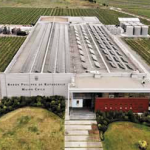
THE WINEMAKING PROCESS
The process area encompasses the management of waste, water, energy and lighting throughout the winemaking process.
- A recycling plan for containers and packaging has been implemented.
- Water use in the offices and winery has been optimised. Measures have been put in place to increase the use of renewable energy, such as solar panels on the Maipo bodega.
- Biodegradable cleaning and sanitizing products are used.
- Suppliers are monitored and evaluated for their commitment to workplace safety and labour laws among other things.
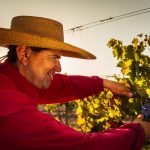
CSR
CSR encompasses company policy and the protection of Baron Philippe de Rothschild workers and the community.
- A health and safety department is responsible for preventing risk to workers.
- Workers can take advantage of a continuous training plan throughout their career.
- Baron Philippe de Rothschild Chile continuously monitors and evaluates the impact of its activities on the environment.


